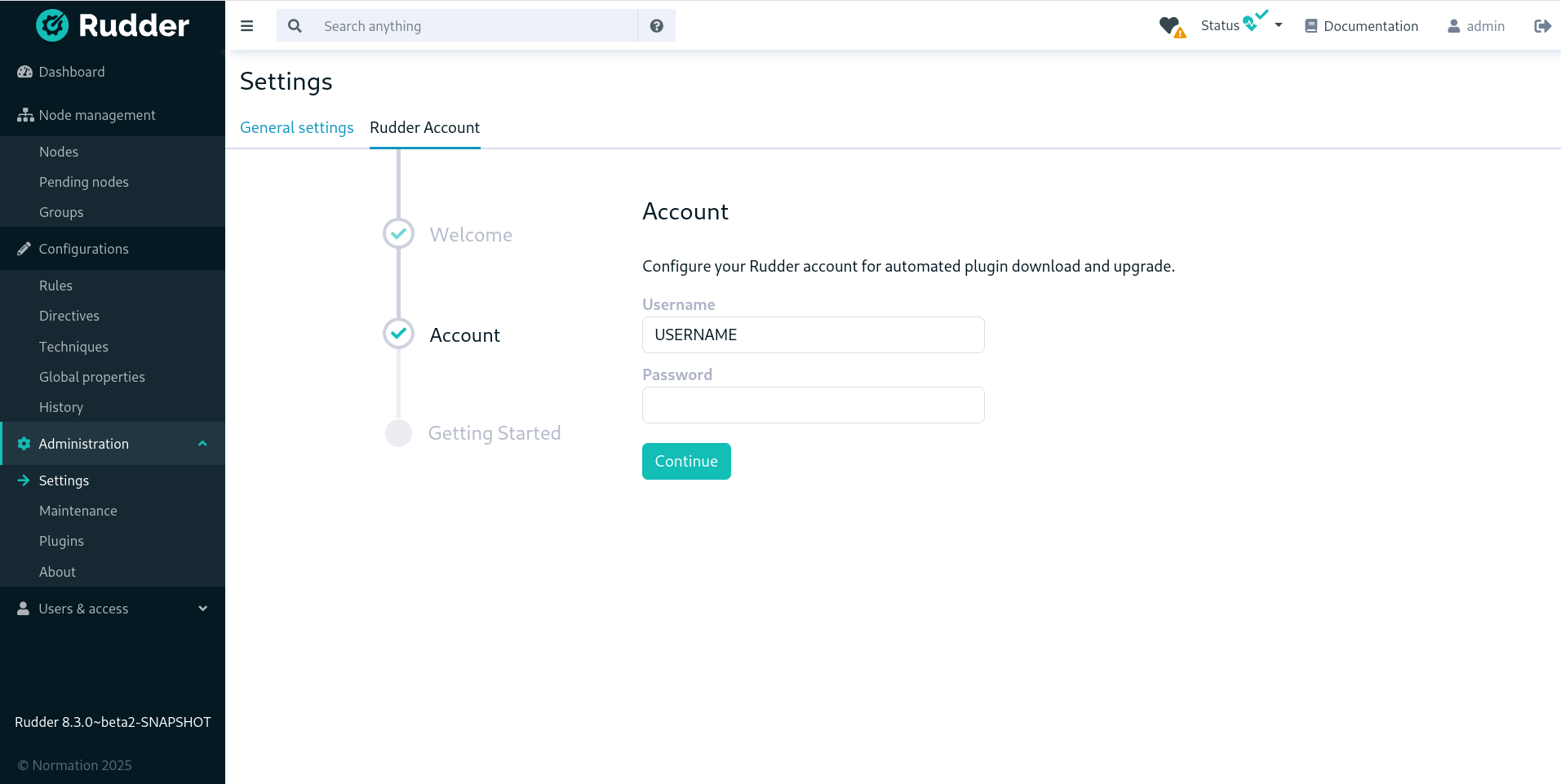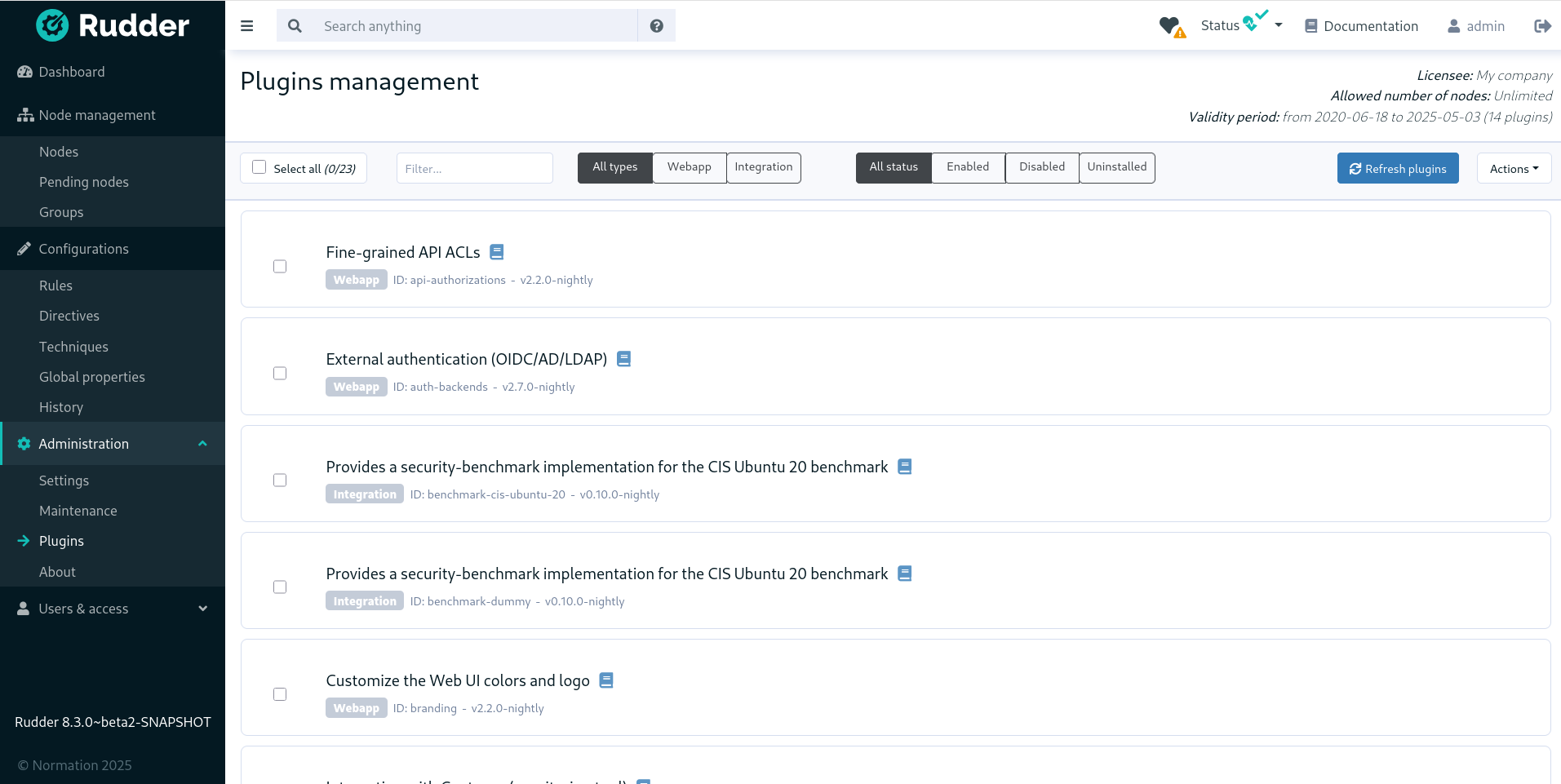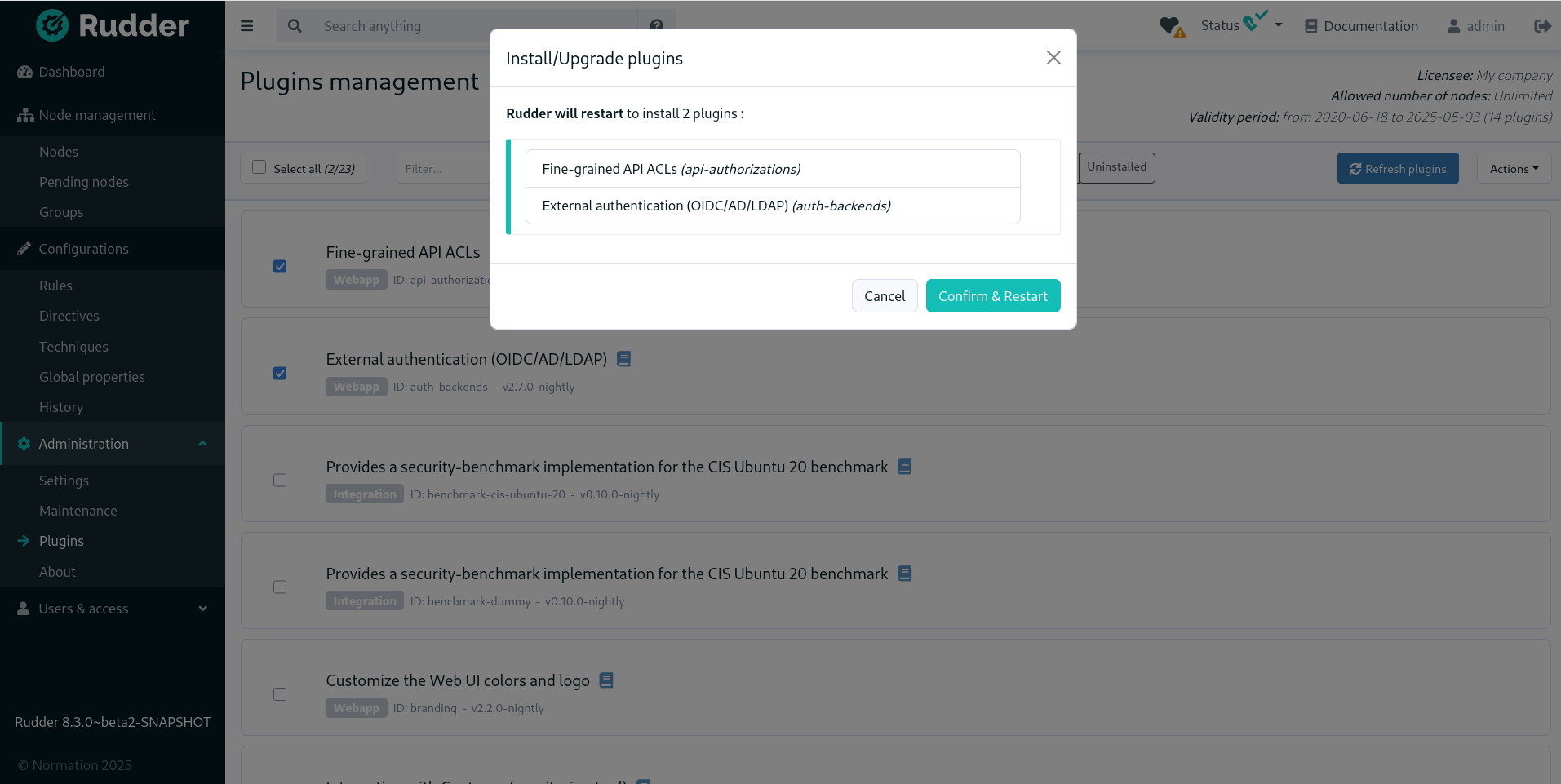Manage plugins
Rudder is an extensible software. There is a dedicated Plugins page for listing available plugins, installing and managing plugins. There are two types of Rudder pre-packaged plugins:
-
Integration plugins, that allow linking Rudder to other tools (monitoring, inventory, notification, etc.). They are freely available.
-
Feature-enhancing plugins (patch management, OIDC/LDAP login, validation workflow, etc.) which are provided under license after the setup of your Rudder account.
You can download free plugins on repository.rudder.io or get information about plugins included with your Rudder account and subscription on the Rudder website.
Basic plugin management via UI
To manage plugins through the Rudder web interface, navigate to Administration → Plugins. From this page, you can list plugins from the repository, and search for plugins to install. Other actions such as upgrading, enabling, disabling, and uninstalling plugins are also available.
Account setup for plugin licensing
Before installing plugins, ensure your Rudder server is setup with a technical account, which username is the same as the licensee ID used for verifying the plugin licenses. If the account is not yet setup, the Plugins page will have a warning with a link to the page to setup the account :

The setup and advanced configuration values are also available, see the details in the Advanced plugin management section. After the successful setup of the plugins page, a summary of the license information of plugins will be displayed at the top of the Plugins page :

Advanced plugin management
Technical account configuration
The technical account can be edited from the configuration file /opt/rudder/etc/rudder-pkg/rudder-pkg.conf, and you can also define proxy information if your Rudder server needs to get through a proxy to download plugins. Keep the values empty if you don’t need them (no proxy or no authentication).
[Rudder]
url = https://download.rudder.io/plugins
username = USERNAME
password = PASSWORD
proxy_url =
proxy_user =
proxy_password =Plugin installation and management
Plugin management in the command line involves using the rudder package command.
Start by updating the repository index and your licenses:
rudder package update
List available packages:
rudder package list --all
You can then install plugins with:
rudder package install <plugin_name> rudder package install <plugin_name_1> <plugin_name_2>
The application will restart if necessary. Please read the install output carefully as some plugins require additional dependencies.
To update a plugin, refresh the repository index with rudder package update and run:
rudder package upgrade <plugin_name>
If your server is configured to use the Rudder plugin repository, a daily job will automatically update your plugin index and licenses. If is fails or your server can’t reach the repository, when one or more licenses come close to expiration, an alert will appear in Rudder’s menu bar.
Manual plugins installation
If you have downloaded the .rpkg package file of the plugin on your Rudder server, you can install it offline with :
rudder package install <package.rpkg>
To update the plugin, you need to reinstall it with the same command, but in the newer version.
If the plugin requires a license, you can enable it by putting your license.key and .license files under:
/opt/rudder/etc/plugins/licenses/
More about plugins
A plugin is an .rpkg file (for "Rudder package"), see the dedicated documentation for more
information about the format.
You can get information about available plugins with:
# List currently installed plugins rudder package list # List currently available plugins rudder package list --all # Display details of a plugin rudder package show <package_name>
You can manage installed plugins with:
rudder package enable <plugin> rudder package disable <plugin> rudder package remove <package>
See all available commands with:
rudder package --help
← Troubleshooting API authorizations →
